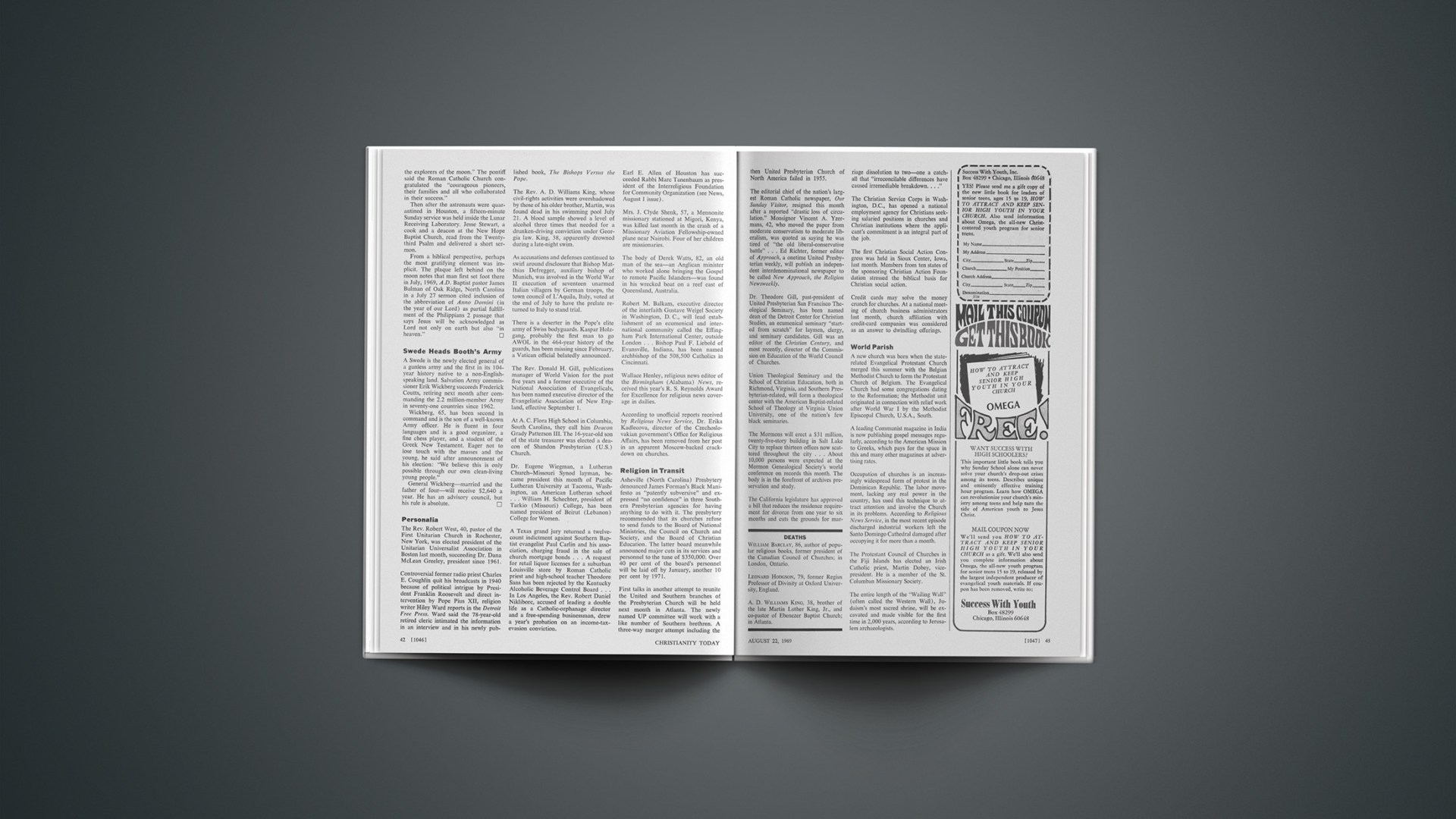If YOUTHEXPO had come off as planned, 10,000 Lutheran Church in America young people—most of them white and non-urban—would have massed in Detroit’s giant Cobo Hall for one hot, mid-August week. They would have been bombarded with exhibitions (drug addiction to Motown records) and mass happenings (Mrs. Coretta King, to Smokey Robinson and the Miracles). They would have “celebrated life” and “become alive to the world,” especially its black urban problems.
But only 3,158 had registered by June 19, and six days later a tom cabinet voted to scrub the venture. The answer to “Why only 3,158?” is a lesson in white anxiety and black suspicion.
Officials cite “fear of the city” as the number-one reason. Parents fearing a “black thing” wrote letters, and even the Illinois Synod Youth Committee called for cancellation because “fear of the city is legitimate.”
Rumors that James Forman was involved and that Mrs. King was going to call for draft-card burning circulated widely and convinced predominantly rural and small-town pastors that YOUTHEXPO was no place for youngsters. Other common responses were: “Where is the presence of Christ?” and “Will the SDS take over?”
YOUTHEXPO’s most serious snag came from the Detroit-based Association of Black Lutheran Churchmen, irate over manager Clair Hoifjeld’s failure to contact them. Hoifjeld’s conciliatory offer to place a black on the cabinet was called only an “attempt to salvage and legitimize what you are going to do … a whitewash.” The ABLC added that because “you have failed to see the potential explosiveness of 10,000 white people coming to Detroit in the summer that could have ramifications of national rebellion, we will do all in our power to prevent black youth from participating, in order to protect white folk.”
YOUTHEXPO ignored the signs but insufficient registration finally ground the gears to a halt. Hoifjeld is not at all ready to say YOUTHEXPO failed. He points to little YOUTHEXPOs springing up. Another cabinet member, Pauline Redmond of Detroit, is frustrated and bitter; she may leave the Lutheran Church. She says: “We thought they were ready for confrontation, but all they really wanted was their Sunday social. We overestimated the maturity of the church.”
ROBERT E. FRIEDRICH, JR.










